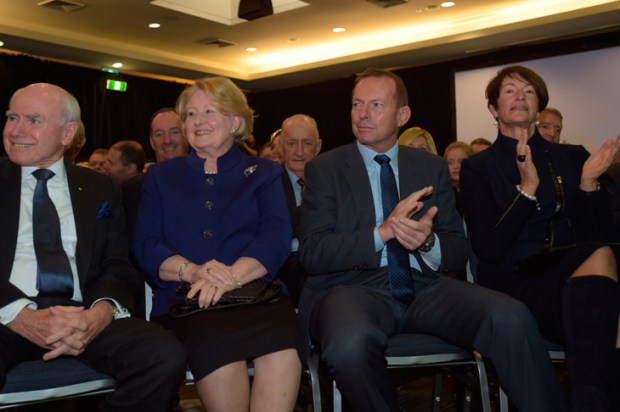Integration is back
Peter Dutton has signalled that provisional migrants should be treated as temporary residents until they have ‘proven their commitment’ to Australia. This is an explicit integrationist agenda. He is considering asking questions that test the values and commitment to Australia of those who seek permanent status. There is little detail on the visa reforms, but they appear to consider the removal of the social welfare safety net and other services, such as health, education and employment services for migrants under a provisional visa system. This is a good first step, but the questions would only apply to those already resident in Australia. It would be much better to ask these of potential applicants to Australia, much as any business does when undertaking job interviews.
Shaping the political agenda in Australia
It appears that Dutton is laying the groundwork for a new front on the political agenda. Predictably, Labor and the Greens will fight in the corner of the multiculturalists. Integration versus multiculturalism will be a central theme at the next election.
Right on time comes a leaked Cabinet-in-Confidence submission on the proposed visa reform by the Department of Immigration and Border Protection. The details of the reform are opaque, with most prominence given to co-ordinating comments from the Department of Social Security. These comments were leaked to Fairfax media, which played them for all they were worth. DSS is Multiculture Central, so, of course, they object to anything that might disturb the multicultural industry and its political beachhead in the federal bureaucracy. The DIBP proposes changes to the visa and citizenship system that ‘will reframe temporary, provisional, and permanent migration and citizenship’. The comments were that the proposals ‘have potential long-term costs, detrimental outcomes and social cohesion concerns’. And there could be ‘serious unintended consequences’.
‘DSS is concerned that the proposed reforms risk undermining Australia’s social cohesion (and potentially increase the risk factors that may lead to violent extremism) by creating double standards treating migrants and citizens very differently. DSS strongly recommends humanitarian entrants are excluded from any social security changes relating to visa reform proposals.’ A bit bizarre, given that the humanitarian stream – think Lebanon, South Sudan – is the source of the greatest problems.
… And in the UK
With superb timing, the UK is also heading along the integration path. Former social worker Dame Louise Casey was explicitly instructed to review ‘integration and opportunities in isolated and deprived communities’. Her recommendations are therefore limited to integration measures onshore.
Fortunately, the good Dame has avoided most of the multicultural cant. She noted that the number of people identifying as Muslim grew by 1.2 million between 2001 and 2011. This 72 per cent increase is higher than for any other religious group. Muslims make up the largest non-Christian religious population in the UK at 2.8 million in total.
Casey reported that unease about immigration ‘is not limited to traditional White British communities’. In one northern town she visited, for example, the long-standing Pakistani ethnic community felt very unsettled by an increase in the Roma population.
She also reported that Muslims tend to live in certain city wards with between 70 per cent and 85 per cent Muslim populations. She noted that there were at least 511 schools across 43 local authority areas with 50 per cent or more pupils from Pakistani and Bangladeshi ethnic backgrounds. At one non-faith state secondary school pupils believed the population of Britain to be between 50 and 90 per cent Asian, such had been their experience to that point.
Some of the recommendations are mealy-mouthed, but some are just starting to get the right pitch. For example, she recommends ‘the promotion of British laws, history and values within the core curriculum in all schools’. The hope is that this would help build ‘integration, tolerance, citizenship and resilience in children’.
Casey, very tentatively, has suggested the desegregation of ethnic schools. She suggests schools providers and local communities ‘encourage a range of school provision and projects to ensure that children from different communities learn alongside those from different backgrounds, perhaps purchasing sites in the areas of highest segregation in advance and encouraging Multi-Academy Trusts to have a diverse range of provision’.
Tests before visa
She recommended that the government consider whether additional integration support should be provided immediately post arrival, and how clearer expectations on integration could be set, potentially in advance on an application for a visa, so that those moving to the UK get off to the best start, and know their rights and obligations.
Casey also recommended that the Government should look at what is required for British citizenship, and consider ‘an Oath of Integration with British Values and Society’ on arrival, rather than awaiting a final citizenship test. This is a good start, but more powerfully, the UK and Australia should test the values of those who wish to join those societies. Should any values be held to be incompatible, the application would not proceed.
Of course, someone could lie, but an immigration officer would be entitled to make judgements about the truth or otherwise of someone’s answers. In any event, the ball is in our court, and we can choose whomever we want coming to Australia.
Got something to add? Join the discussion and comment below.
Get 10 issues for just $10
Subscribe to The Spectator Australia today for the next 10 magazine issues, plus full online access, for just $10.
You might disagree with half of it, but you’ll enjoy reading all of it. Try your first month for free, then just $2 a week for the remainder of your first year.














Comments
Don't miss out
Join the conversation with other Spectator Australia readers. Subscribe to leave a comment.
SUBSCRIBEAlready a subscriber? Log in